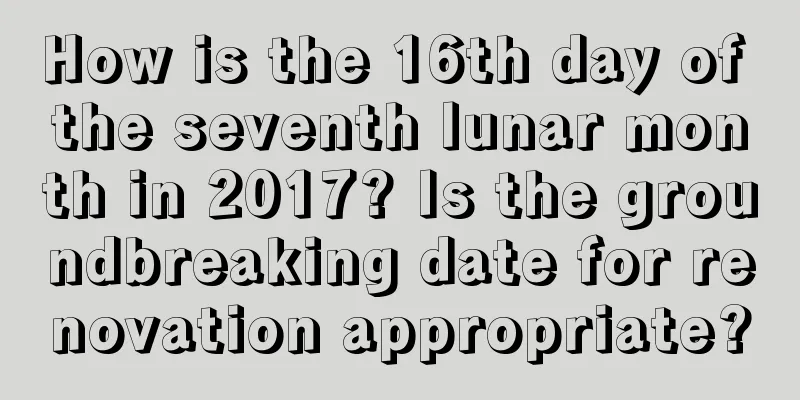What is the origin of New Year’s Day?

What is the origin of New Year's Day as the first day of the Gregorian calendar? Is New Year's Day unique to China or is it shared internationally? When does New Year's Day begin? The Fortune Teller website has the answer for you. In the eleventh month of the lunar calendar, no matter whether it is wedding or family affairs, everything is happy. Mr. Shui Mo brings you the blessings of the winter month to bring you auspicious warmth. I wish you all the best!What is the origin of New Year’s Day?The origin of modern New Year's Day: Chinese New Year's Day has always referred to the first day of the first lunar month in the Xia calendar (lunar calendar, lunar calendar). Starting from Emperor Wu of the Han Dynasty, the first month of the lunar calendar was designated as the first month of the lunar calendar, and the first day of the first month of the lunar calendar was called New Year's Day, which was used until the end of the Qing Dynasty.In 1911, the Xinhai Revolution led by Sun Yat-sen overthrew the rule of the Qing Dynasty and established the Republic of China. Representatives of provincial governors met in Nanjing and decided to use the Gregorian calendar, calling January 1 of the lunar calendar "Spring Festival" and January 1 of the Gregorian calendar "New Year's Day", but it was not officially announced at the time. On September 27, 1949, the First Chinese People's Political Consultative Conference, while deciding to establish the People's Republic of China, also decided to adopt the world-wide Gregorian calendar, which we call the Gregorian calendar. New Year's Day refers to the first day of the year in the Western calendar. In order to distinguish the lunar and solar new years, and in view of the fact that the "Start of Spring" in the 24 solar terms of the lunar calendar falls around the Lunar New Year, the first day of the first lunar month was renamed "Spring Festival", and January 1 of the solar calendar was designated as the beginning of the new year - "New Year's Day", and was included in the legal holidays, becoming a holiday for the people across the country. Origin of New Year's Day: Around 50,000 BC, the ancient Egyptians changed from nomadic to agricultural, and settled on both sides of the Nile River. Their agricultural harvest was closely related to whether the Nile River flooded. The ancient Egyptians discovered from long-term observations that the time of the Nile flooding was regular. They recorded the time each time on bamboo poles, from which they learned that there was about 365 days between two floods. They also discovered that when the first rising tide of the Nile River reached the vicinity of today's Cairo, it was also the time when the sun and Sirius rose from the horizon at the same time. Therefore, the ancient Egyptians set this day as the beginning of the year. This is the earliest origin of "New Year's Day". Now, most countries in the world regard January 1st as New Year's Day. Due to the different longitudes of countries around the world, the time in each country is different, so the date of "New Year's Day" is also different. For example, Tonga, an island country in Oceania, is located on the west side of the International Date Line. It is the first place in the world to start a new day and the first country to celebrate New Year's Day. Western Samoa, located on the east side of the International Date Line, is the place in the world where the new day starts the latest. The origin of the ancient New Year's Day: Legend has it that during the prosperous era of Yao and Shun more than 4,000 years ago, Emperor Yao was diligent in his work and did many good things for the people, and was loved by the people. However, because his son was not talented and not very capable, he did not pass the throne of "Son of Heaven" to his son, but passed it to Shun, who was both virtuous and talented. Yao said to Shun, “You must pass the throne well in the future, so that I can rest in peace after my death.” Later, Shun passed the throne to Yu, who had made great contributions to flood control. Yu, like Shun, was close to the people and did many good things for the people, and was very loved. Later, people regarded the day when Emperor Shun offered sacrifices to the heaven and earth and the former Emperor Yao after Yao's death as the beginning of the year, and called the first day of the first lunar month "New Year's Day", or "Yuan Zheng", which was the ancient New Year's Day. |
Recommend
When is the Grain Rain solar term? The meaning of the Grain Rain solar term
When is the Grain Rain solar term? What is the sig...
Can I go back to my parents’ home during the Spring Equinox in 2021? What are the etiquettes for a daughter to return to her parents’ home?
Speaking of going back to one’s parents’ home, I b...
Is today, April 16th of the lunar calendar 2019, an auspicious day for a funeral? What is the hexagram for today?
Introduction: In our country’s traditional culture...
Query the auspicious and unlucky time of August 16, 2017, and the auspicious and unlucky time of August 16, 2017
The golden autumn is in August. We harvest beauti...
Can we burn incense to the God of Wealth on the Ghost Festival on July 15th? Why do we release sky lanterns during the Ghost Festival?
Can we burn incense to the God of Wealth on the Gh...
Can I move house on the sixth day of the fourth lunar month in 2019?
April is the most beautiful month in the world. A...
What does “get up early and go to bed late at the beginning of spring” mean?
The 24 solar terms are the crystallization of the ...
Can I move into my new house on March 13 (April 5), 2020?
Moving into a new house means moving into a new h...
Do boys born on March 11, 2018 in the lunar calendar have good fortune? Is their luck good?
Introduction: Every day unfolds differently, and c...
Is the Double Ninth Festival on the ninth day of the ninth month of the lunar calendar in the Year of the Tiger in 2022 a good time to start renovations?
Choosing an auspicious day to start the renovation...
Which direction is the God of Wealth on the tenth day of the seventh lunar month in 2020?
Which direction is the God of Wealth on the tenth...
What is the saying about eating pears during the Waking of Insects? Where does Jingzhe come from?
Jingzhe is one of the 24 solar terms in my country...
Is the third day of the fourth lunar month in the Gengzi year of 2020 an auspicious day?
Is the third day of the fourth lunar month in the ...
Where is the God of Wealth on the first day of November 2018? Where is the God of Wealth?
The eleventh month of the lunar calendar is the f...
Is it okay to get married on the fourth day of the first lunar month in 2019? Can I get engaged today on the fourth day of the first lunar month?
Introduction: The fourth day of the first lunar mo...









